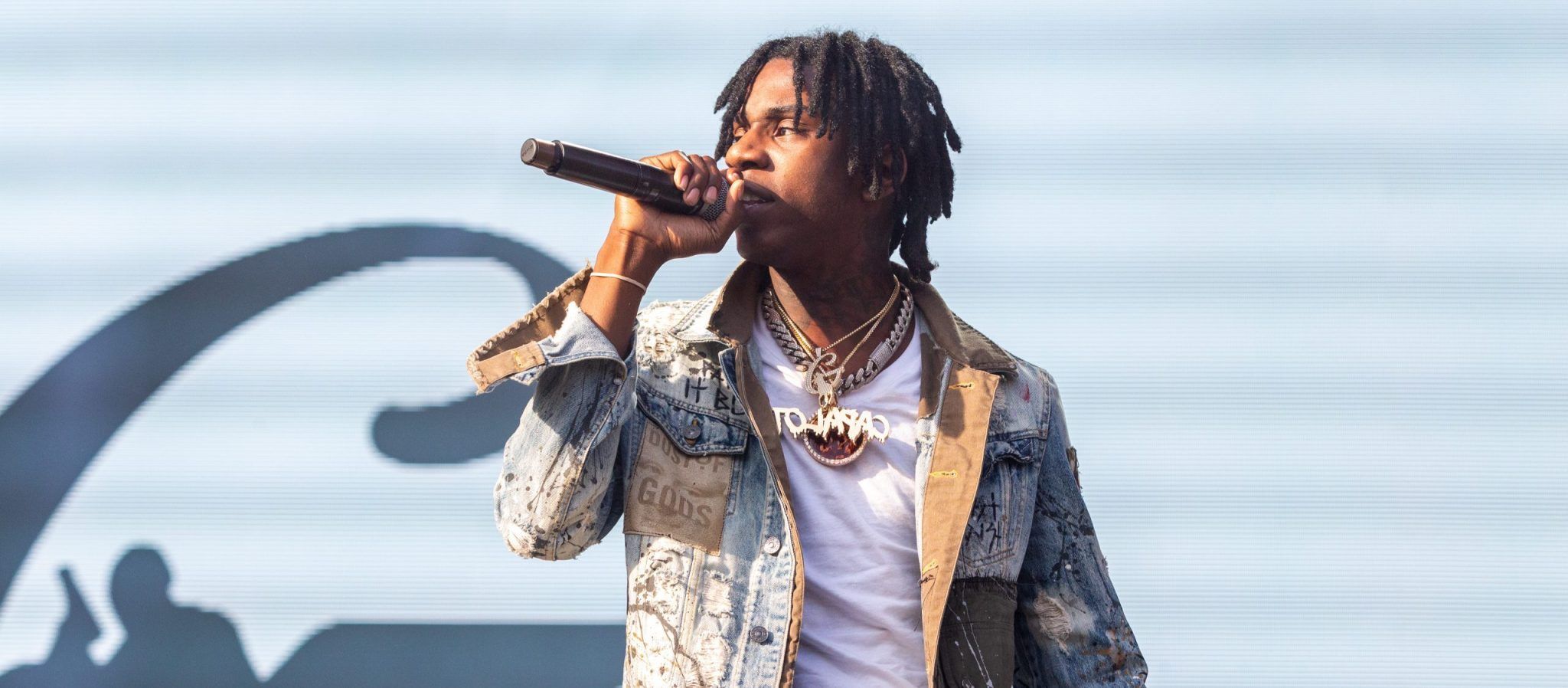Polo G is actually good

I started hearing the chants of “Piano G” outside my window as soon as I conceived of my idea for this article. At that time, they were a faint whisper. Now, as I write these opening sentences, their sound is deafening. The haters have arrived at my doorstep, and my time is limited. Hear me out – and if you aren’t convinced to give Polo G a chance by the end of this article, join the mob at my door.
Polo G, born Taurus Tremani Bartlett, is a rapper from the West Side of Chicago known for his style that combines elements of drill, trap, and melodic rap. He is most famous for his singles “Pop Out” and “Rapstar,” and has released three albums at the time of publication. As he rose in popularity, Polo G was increasingly criticized for his apparent boring beat selection, selecting only beats with piano melodies, hence the mocking nickname: “Piano G.” While I do agree his production could be more interesting, I believe that he has the tools to be great.
I started listening to Bartlett in high school, right around the time of the release of his second album, The Goat (a reference to his astrological sign). He hooked me with his catchy melodies and emotionally packed lyrics. Even though I don’t listen to him as much now, my respect and appreciation for his music has not faded.
One of the strongest elements of Polo G’s music is his lyricism. He is able to put on the facade of a confident, braggadocious, playboy in one song, and then seamlessly remove it to tell a heartbreaking tragedy in the next. One of the best examples of his storytelling prowess is “Bloody Canvas” off of his third album Hall of Fame, on which he tells a heartbreaking story of revenge and gang violence. The majority of his songs have a dark tone to them which reflects Polo G’s harsh upbringing and the tragedies he has had to endure. Tracks such as “No Matter What” display that Bartlett is grateful for his success and hasn’t forgotten where he came from: “Used to daydream of shinin’ in the hood with these bands / Tryna leave these hard times and run through millis with my friends.” On “Martin and Gina” he shows off his playful,romantic side, playfully teasing the subject of the song with lines like “Even on your worst days, girl, you still kind of cute.” Two of the best examples of his raw lyrical talent are his XXL freshman cypher and freestyle, dropping lines we can all relate to such as: “Damn, a new disease dropped, causin’ mass hysteria / It’s always some bullshit, welcome to America.” Overall, Polo G is an underrated lyricist with the flexibility to create a diverse array of moods with his words, already proving he is more than the one-trick pony his critics claim him to be.
I recently have noticed that I prefer artists who display raw emotion in their lyrics. Many artists that I like such as Kendrick Lamar, Big Thief and Ecco2k wear their heart on their sleeve and aren’t afraid to express their deepest feelings to the world. While Polo G isn’t on that level, he does display flashes of raw, emotional lyricism that I appreciate. His first album Die A Legend provides the best examples of this, as it is his most musically and emotionally raw work. On “Chosen 1” he laments: “I put my life on the line, you wouldn’t take that risk for me / Fucked up my trust, wish I could delete all our memories.” Bartlett’s bars centered around themes of betrayal and regret are not unique to this track; it is clear as you go through his discography that he is haunted by memories of his past. While some artists merely hint at the low points in their lives in their songs, Polo G pushes his pain to the forefront of his music.
The last line of the aforementioned “Chosen 1” is “I’m way too solid for the gimmicks, fuck the industry,” which is quite ironic considering the stylistic choices he would make a few albums later on Hall of Fame. Polo’s rapping ability and lyrical depth are seldom criticized, yet, as I alluded to earlier, his production is the most controversial part of his music. I must admit that some of his beats sound generic and uninspired, especially on the latest album. But what his critics fail to see is that he does have some songs with interesting production, as well as the potential to rap over any beat. The first example that comes to mind is the last track off of The Goat “Wishing For a Hero,” which samples 2Pac’s iconic hit “Changes.” Both the sample and lyrical content of the song pay homage to the soulful, sobering, yet hopeful original song. My one criticism is that the mix is pretty shaky, especially the hi hats, but that doesn’t have as much to do with Polo G himself. Another Polo G song with more interesting production is “Last Man Standing,” on which Bartlett delivers bar after bar about police brutality over a textbook soul sample and light drums. While not too innovative, the beat is a bit different that what he normally would rap over.
I truly believe that Polo G has the raw talent to rap over most beats. If he decides to rap over more experimental and varied production, I would be all for it. While I doubt he will make that stylistic choice, I will continue to hold out hope – but even if he doesn’t, I will still continue to believe that Polo G is actually good.